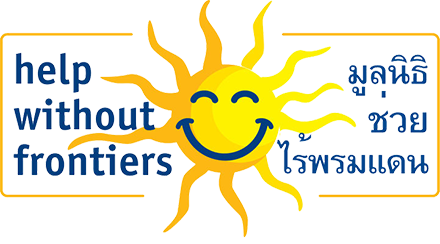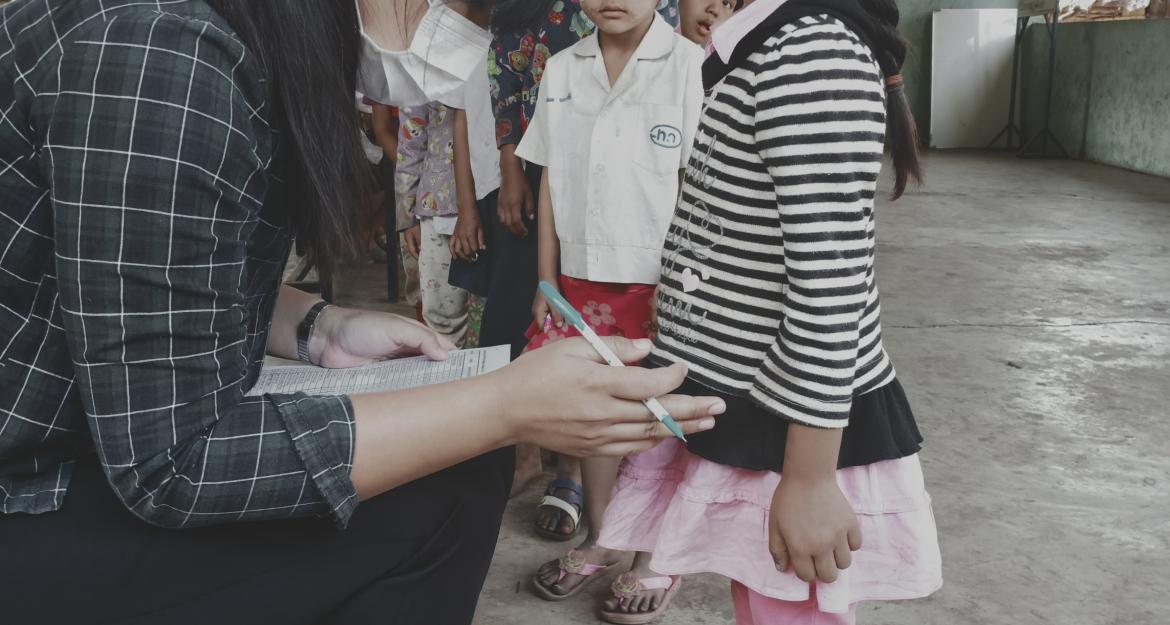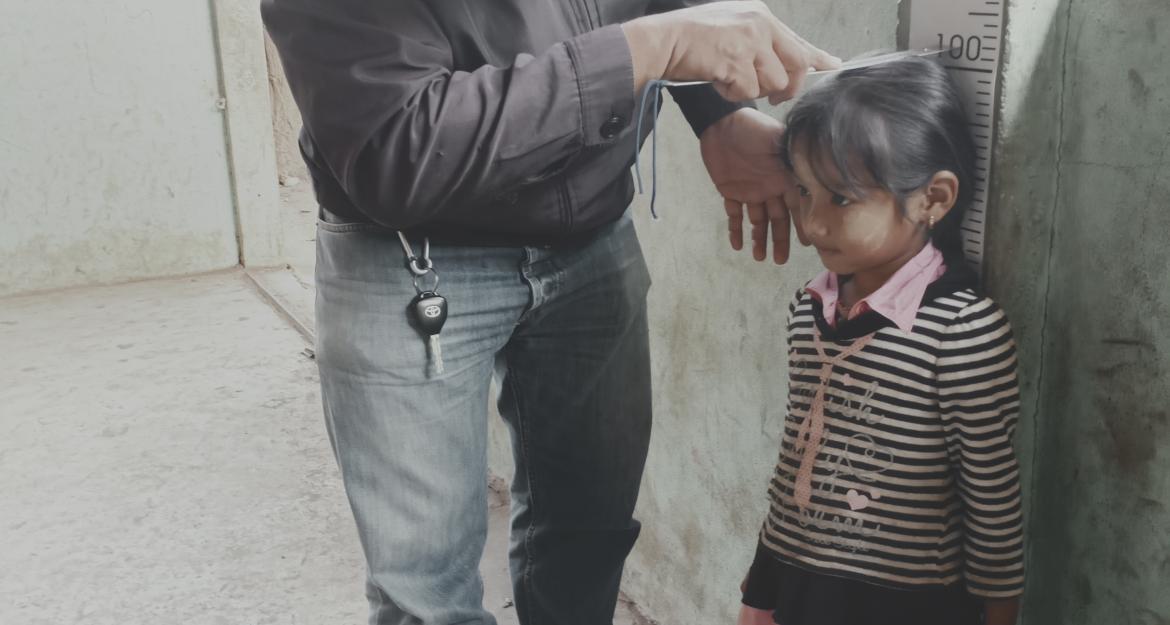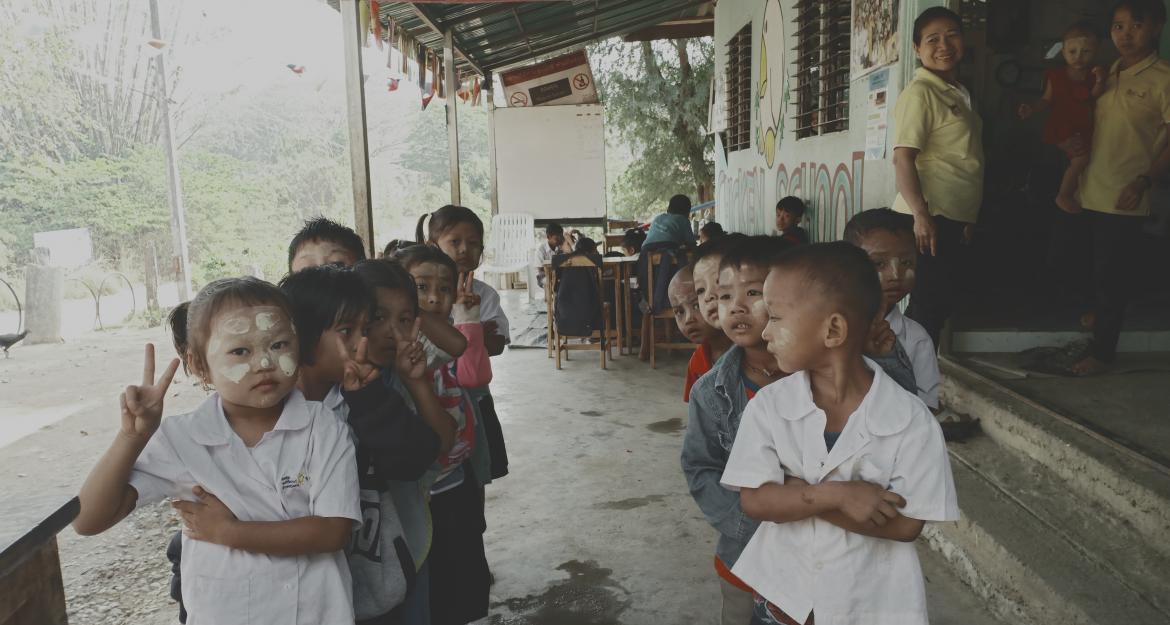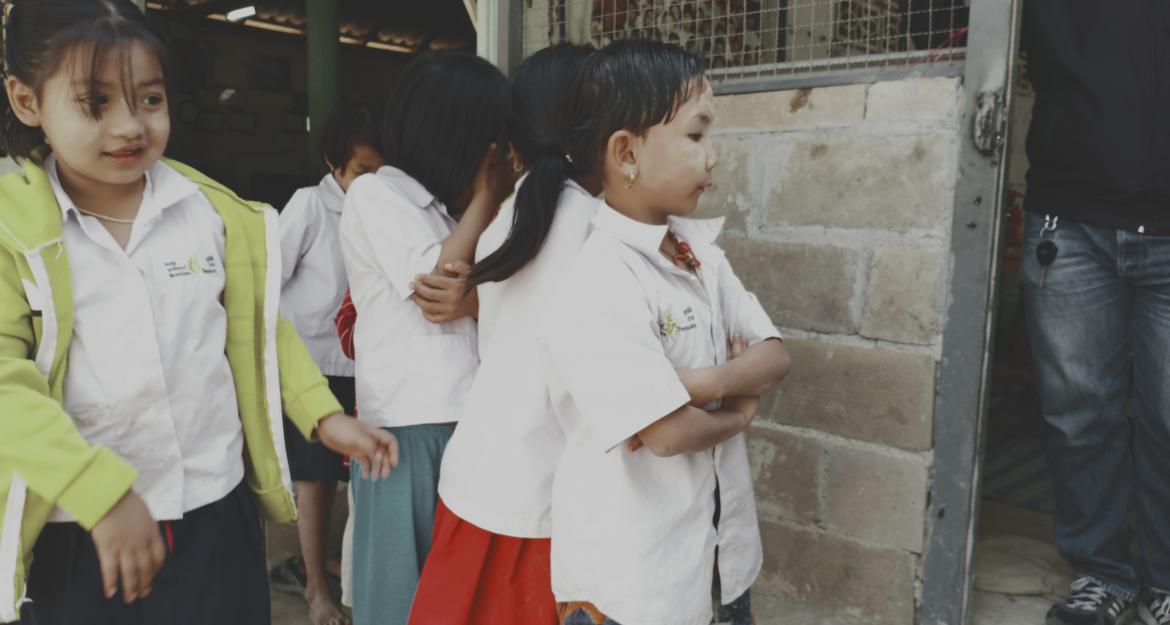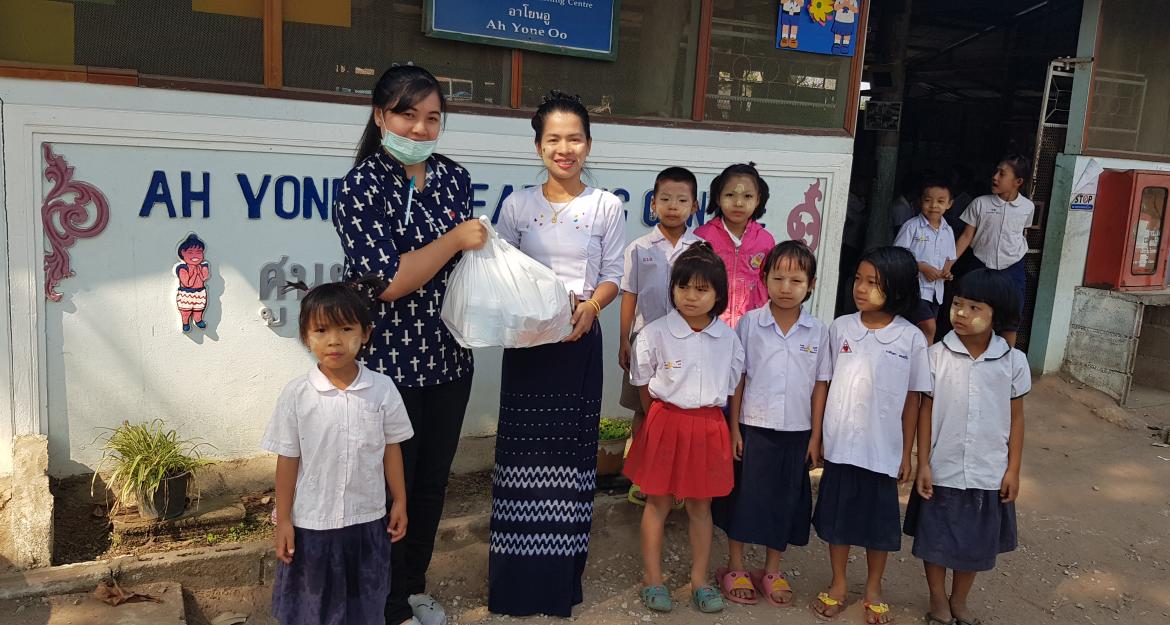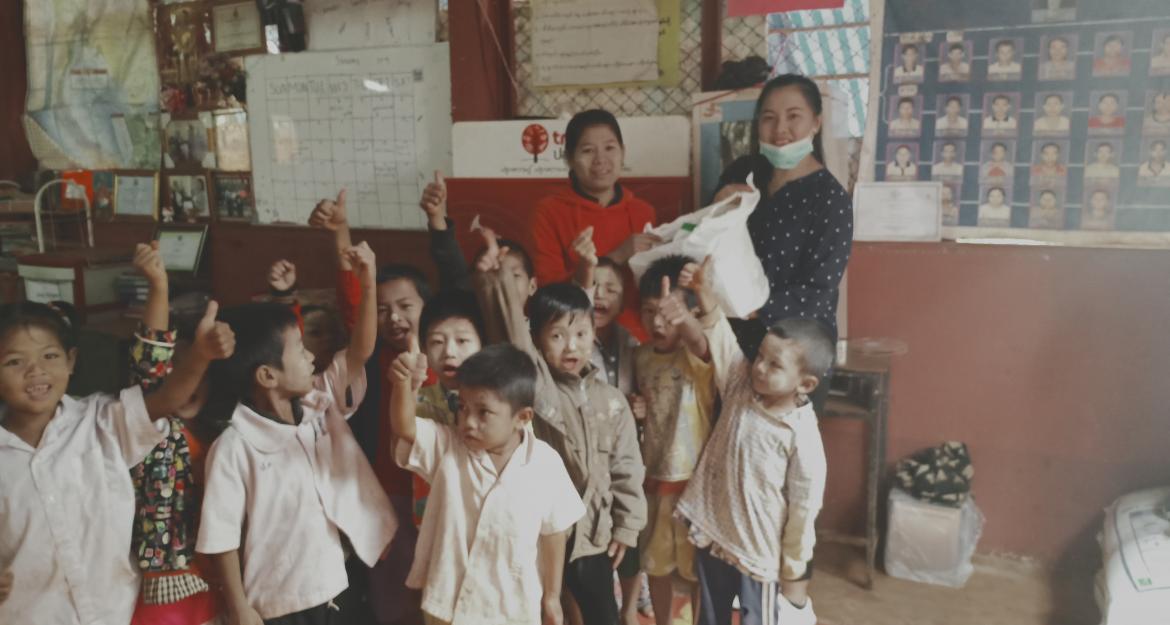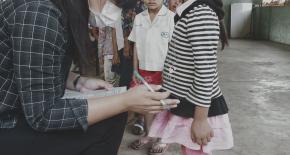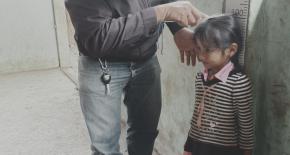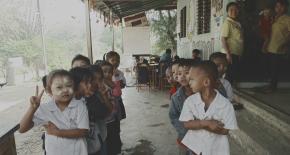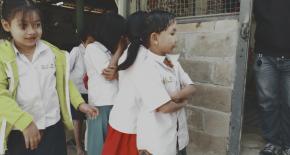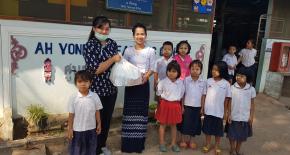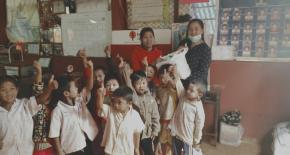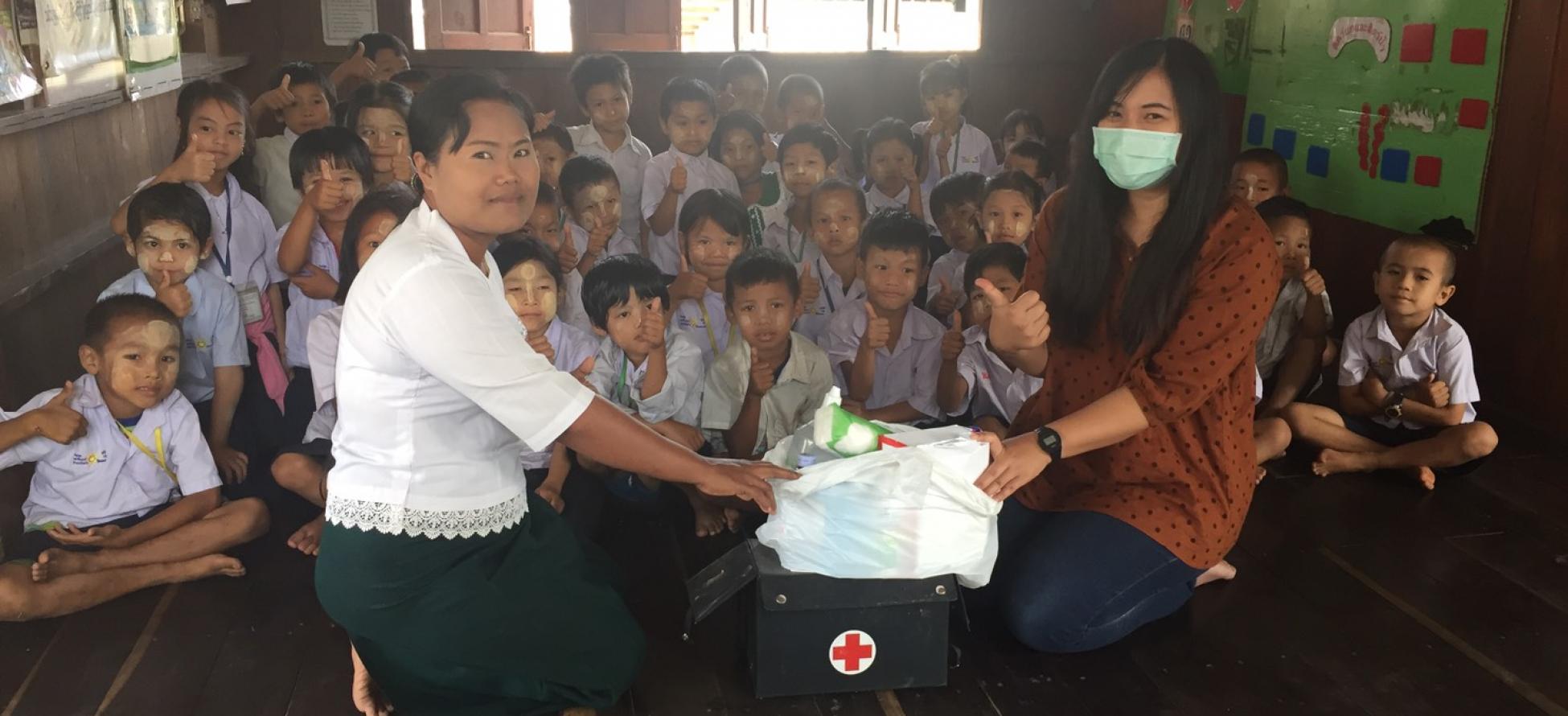
Burmese migrants in Thailand often live in a condition of extreme poverty and lack proper legal documents. As a result of lack of documentation and legal statuses, many struggle to access basic services, such as healthcare and education. As a result, many Burmese migrants lack health insurances and the cost of healthcare risks to be disproportionately higher than what they can afford.
Help without Frontiers is committed to improving the nutritional standards of migrant children to allow them to develop and thrive. To this aim, since many years, thanks to the kind support of Act Now Children's Fund, we collaborate with Dutch Mill and distribute milk to all children enrolled in the Migrant Learning Centres under Help without Frontiers. Milk plays a significant role in the nutrition of children as it is one of the main sources of calcium in their daily diet that contributes to building healthy bones and teeth. Milk is also a source of protein as well as it contains a wide range of vitamins and minerals that are deemed essential for enhancing children's development, improve their cognitive and physical skills and grow up as strong and healthy adults.
Since the inception of the milk programme, Help without Frontiers has been monitoring the impact of introducing milk in the diets of children. To this aim, the monthly distribution of milk is coupled with biyearly measurements of height and weight to assess whether there is any case of malnutrition. With this regard, thanks to the kind collaboration with the Mahidol University, the staff of Help without Frontiers is able to input the data on age, gender, height and weight into a software that automatically indicates whether there is any indicator that is worrying for the health of children. As a result of the milk programme, today migrant children are healthier and their weight and height measures are in line with the child growth standards indicated by the main global agencies working in the field of health.
In February 2019, the staff from the Health department of Help without Frontiers measured the weight and height of more than 1,700 Burmese children from Nursery to Grade 2 enrolled in our 14 Ray of Hope schools. On the same occasion, all the Learning Centres received a set of medical equipment and medicines, including first aid equipment such as sterile gloves and gauzes, syringes, splints, plasters, tourniquets etc. The sets also included medicines that are fundamental to cure the most common diseases such as antibiotics, antivirals, cortisone creams, and others. The medical equipment and medicines were supported through the kind contribution of MobileDiagnosis, an NGO set up by Doctor Livia Bellina in order to contribute to universal and equitable access to health care.
All Migrant Learning Centre have indicated one teacher or a group of them to be the focal point for monitoring the health situation of the students and refer the case elsewhere where necessary. Milk distribution and the monitoring of weight and height, coupled with the distribution of medicines for treating common diseases, are meant to improve the health conditions of migrant children. The investment in nutrition and healthcare is of utmost importance at Help without Frontiers as we believe that the bright future of the country is in the hands of strong and healthy children.


